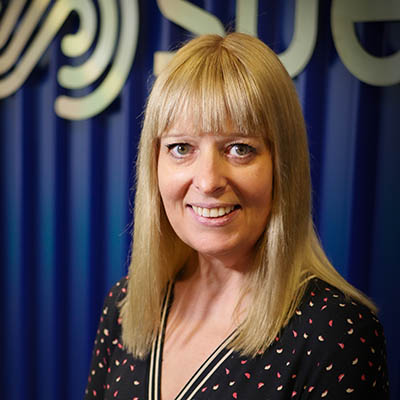Why respect matters – for our workplace culture and our (true) selves

Be yourself. It’s wise and timeless advice, but as simple as it sounds, it’s harder than ever to follow in an age where we are bombarded by messaging telling us what we should have and aspire to. These external pressures to conform with, often unreal or unachievable, standards weigh especially heavy on people immersed in social media.
Consider what it does to our sense of wellbeing when we feel we can’t be our authentic selves. Every situation, whether social or at work, becomes more stressful. Constantly masking your identity or conforming to rigid norms is distracting and uncomfortable. To live and work like this day in, day out must be exhausting.
By contrast, when you feel safe and secure enough in the workplace to be who you truly are, you will build trust with colleagues and enjoy a stronger sense of belonging and job satisfaction. This authenticity is essential not just for an employee’s personal wellbeing but also for organisational success.
Respect underpins authenticity
What underpins (or undermines) that confidence to be authentic? Among the factors that matter, respect is critical – both self-respect and the respectful attitude of others. Where respect is lacking, employees will feel inhibited or even intimidated. They won’t communicate openly, ask for help, offer their opinions and ideas, or fully engage. Being our true selves is best for the individual and brings out the best in teams too.
This is why respect is one of our SUEZ core values, and a key behaviour identified in our Wellness Charter drawn up by our employees back in 2019. This charter has inspired and guided our approach to wellbeing, just as our earlier Health and Safety Charter encouraged employees to be mindful of risks to themselves and colleagues and to work with ‘Safety in Mind’.
In the same spirit, our new Respect Charter was developed by over 400 employees from across our business who shared their experiences, suggestions and expectations. It puts into words the attitudes and behaviours that we all want to see consistently within our teams and on sites every day.
Do unto others…
What is respect? It’s treating people as you would wish to be treated yourself. So, the charter’s five pillars are similarly simple yet powerful:
- Every person is important.
- We treat everyone fairly.
- We welcome different views.
- We speak to each other respectfully.
- And we do what’s right.
These principles touch on every aspect of the organisation and its operations, from teamwork to innovation to customer engagement. This became clear in a podcast with SUEZ UK’s leadership team, following the Respect Charter’s formal launch last month. The team shared their personal and professional views on respect and explained how respectful attitudes and behaviours are fundamental – when managing people and giving feedback, when working alongside teammates, and when interacting with customers and the public.
Many of our frontline staff appreciate this only too well as they have been increasingly on the receiving end of abuse at the roadside or in household waste recycling centres. In response, earlier this year we launched a campaign to call out and curb aggressive behaviour towards waste and recycling workers. Called ‘We Refuse Abuse’ the media activity and short film highlighted the problem with the help of CCTV and bodycam footage.
Just as we expect our people to show respect for everyone, they deserve to be respected in return as they provide essential services in communities.
Encouragement and support
How do we show respect and support the charter as an employer?
The onus is on us all as individuals to live up to the charter. By being kind, showing empathy, and listening actively we build trust with each other and openness. Respect also means being accountable for what we say and do.
Equally, people are empowered to speak up and challenge, respectfully, and be heard (whether, for example, by their line manager, HR reps, Wellbeing and Inclusion teams and ambassadors, our ethics officer, or our confidential helpline). Having created safe places for speaking up, we commit to acting when behaviours fall short.
Training also has a part to play in fostering a workplace culture of respect. Many of our people have already accessed relevant courses that are now mandatory for all:
- Unconscious bias training exposes hidden assumptions that distort attitudes and interactions, helping us create a fairer and more equitable working environment.
- Banter and boundaries training makes clear the distinctions between positive light-hearted chatter that engages colleagues and inappropriate comments that cross personal boundaries, whether due to thoughtlessness, ignorance or malign intent.
- Sexual harassment training, now being rolled out, provides a clear guide to recognising, preventing and addressing inappropriate behaviour so that every colleague feels safe and protected.
Charting the journey to wellbeing
We’ve been on a journey over the last six years since introducing our Wellness Charter with a vision of ‘Wellness for All’. Today we take a much more holistic approach to wellbeing, and respect is an important part of that.
I’m proud of what we have achieved – from the accelerated roll-out amid the pandemic of wellbeing webinars and online training (that we continue to expand) to the creation of our national Wellbeing and Inclusion Team and the peer-to-peer networks we’ve built.
Our people consistently feed back to my team how much they value the range of support and activities inspired by the Wellness Charter. Respect is fundamental to all of its eight pillars, particularly inclusion and diversity, social wellbeing, and mental health.
I believe the Respect Charter will consolidate and build on this foundation. More than words on a page or poster, the charter is a shared commitment created by our people, for our people. It will help reinforce a workplace culture where everyone feels respected, safe, valued and empowered to be their authentic self.
